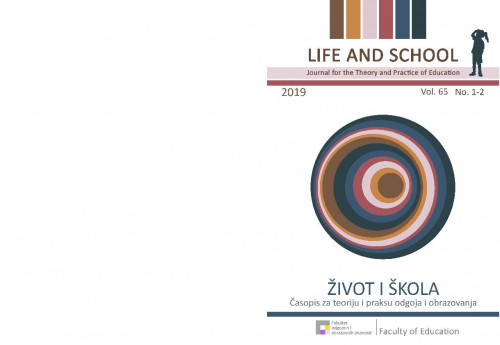Istarska županija 2014. godine započinje proces implementacije zavičajne nastave u kurikulum ustanova ranog i predškolskog odgoja, osnovne i srednje škole. Smisao je procesa implementacije da se sačuvaju zavičajne vrijednosti i svijest o kulturnom identitetu. Cilj je provedenog istraživanja utvrditi podržavaju li roditelji i odgojitelji implementaciju zavičajnosti u kurikulume dječjih vrtića te utvrditi utječe li odgoj i učenje zavičajnih vrijednosti pozitivno na razvoj i očuvanje kulturnog identiteta. U radu se prikazuju empirijski podaci provedeni u dječjim vrtićima „Rapčići“ Žminj i „Grdelin“ Buzet. Anketnim upitnikom ispitani su roditelji djece koja pohađaju dječji vrtić i odgojitelji dječjeg vrtića. Istraživanjem je utvrđeno da u ukupnom prosječnom rezultatu stavova roditelja i odgojitelja roditelji procjenjuju važnijim uvođenje zavičajnosti u kurikulume u odnosu na odgojitelje. Odgojitelji se ne razlikuju značajnije u procjeni važnosti implementacije zavičajnosti u kurikulume vrtića, međutim u procjeni važnosti podrške ravnatelja, kolega i lokalne zajednice primijećena je značajna razlika.; The Istrian County has started the process of cultural heritage classes in the curriculum in the early and preschool education, primary and high schools in 2014. The guideline of the implementation process is to preserve the local cultural values and the consciousness of cultural identity. The goal of this research is to assert if the parents and preschool teachers support the implementation of Cultural Heritage in the curriculum of kindergartens. The empirical data collected in the kindergartens, “Rapčići” Žminj and „ Grdelin“ Buzet is shown in this article. With the use of a questionnaire both parents and preschool teachers were questioned whether they support the implementation of Cultural Heritage in the curriculum and whether the education and learning about local cultural values has a positive effect on development and preservation of the cultural identity.; Die Gespanschaft Istrien beginnt im Jahr 2014 mit der Implementierung der Heimatkunde in die Lehrpläne der Kindertages- und Vorschuleinrichtungen, Grund- und Mittelschulen. Der Sinn dieses Prozesses ist, die Heimatwerte und das Bewusstsein über die eigene kulturelle Identität zu bewahren. Das Ziel dieser Untersuchung ist es, festzustellen, ob Eltern und Erzieher die Durchführung der Heimatkunde in den Kindertageseinrichtungen unterstützen und ob das Lernen über die Heimatwerte einen positiven Einfluss auf die Entwicklung und Erhaltung der kulturellen Identität ausübt. In diesem Beitrag werden die Daten einer empirischen Untersuchung, die in den Kindergärten „Rapčići“ in Žminj und „Grdelin“ in Buzet durchgeführt wurde, dargestellt. Anhand eines Fragebogens haben wir die Eltern und die angestellten Erzieher befragt, und festgestellt, dass sich Eltern eher für die Einführung von Heimatkunde in die Lehrpläne äußern, bzw. diese als wichtiger erachten, als die Erzieher. Es wurde kein signifikanter Unterschied unter den Erziehern in Bezug auf deren Einschätzung der Bedeutung von Heimatwerten in den Lehrplänen von Kindertageseinrichtungen festgestellt. Jedoch stellte sich bei der Einschätzung, wie bedeutend die Unterstützung durch die Kindergartenleitung, die Kollegen und die Gemeinde ist, ein signifikanter Unterschied heraus.
Sažetak

 Život i škola : časopis za teoriju i praksu odgoja i obrazovanja 65,1-2(2019) / glavna i odgovorna urednica, editor-in-chief Vesnica Mlinarević.
Život i škola : časopis za teoriju i praksu odgoja i obrazovanja 65,1-2(2019) / glavna i odgovorna urednica, editor-in-chief Vesnica Mlinarević.